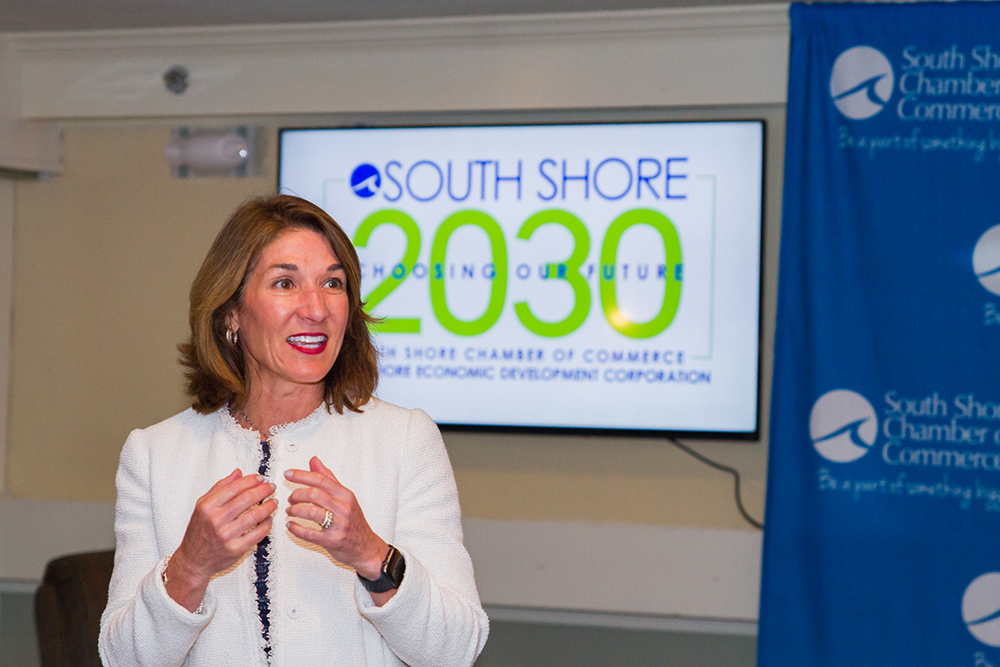Rockland, MA Lieutenant governor Karyn Polito joined South Shore Chamber of Commerce and South Shore Economic Development Corp. (SSEDC) leaders, Braintree mayor Joe Sullivan, Weymouth mayor Bob Hedlund, and area developers in a discussion held June 4th that focused on economic development and housing initiatives both generally around the Commonwealth and more specifically throughout the South Shore and the Braintree/Weymouth Landing.
Throughout the discussion, which started at Landing 53 (25 Commercial St., Braintree), Polito discussed how the initiative, South Shore 2030, launched by the South Shore Chamber is very similar to what she and governor Baker are looking to achieve across the Commonwealth, and how the leadership of the mayors and the business community took this vision and made it a reality at the Landing. A plan is important, she said, but without resources and partnerships, it cannot be implemented.
Polito was joined in her remarks by Peter Forman, executive director of the South Shore Chamber; Rich Beal, chairman of SSEDC; Jim Dunphy, chairman of the South Shore Chamber; mayor Sullivan; mayor Hedlund; Dan Sterner, principal of Forest Properties (which manages Landing 53); Joe Gratta, developer of 143-145 Washington St.; Metri Metri, developer of 165 Washington St.; and Michael Kiley, developer of 10 Front St.. The group walked through the Landing and discussed some of the other ongoing projects taking place in the Braintree/Weymouth neighborhood.
“The completed and ongoing projects at the Landing are such a great example of the important revitalization that can occur when housing is recognized as a key initiative for greater economic development,” said Forman. “We are grateful to lieutenant governor Polito for taking the time to visit this neighborhood firsthand, and for helping us encourage more leaders within the business community to get involved.”
The South Shore Chamber has previously come out in support of governor Baker’s Housing Choice Initiative and proposed housing legislation (H.3507), which encourages cities and towns to adopt zoning best practices related to housing development by changing the threshold from a super-majority (66%) to a simple majority (51%) on nine types of zoning reform, giving towns the tools to introduce new housing types and support local economic activity and growth.









